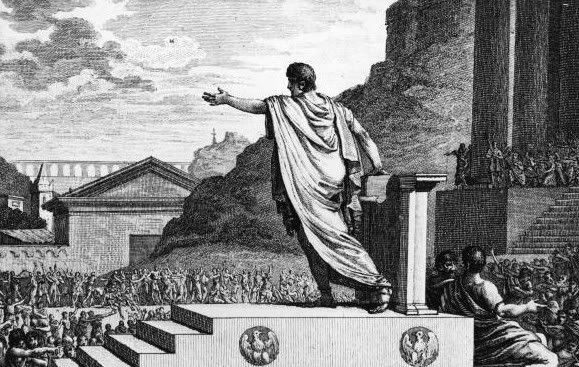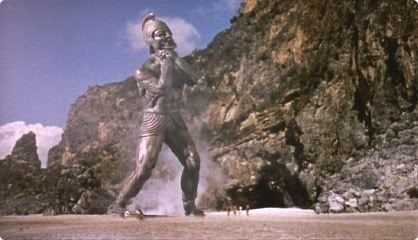Notes from the underground
@
16:12
•
democracy,
Marxism,
philosophy,
politics,
science,
socialism,
society
•
0
comments
![]()
A very common accusation made against the left-wing is that it is too idealistic. Communism fails to take into account human nature, they like to say – it's just too impractical.
Those who are fashionably or vacuously apathetic might be especially fond of this criticism. Moreover, according to many of these people, left-wingers and 'liberals' aren't just dreamers, they are also "self-righteous" bores who are always "pontificating".
As a matter of fact, there seems to be an inherent contradiction when one says that Marxism is "idealistic". Marx is said to have turned Hegelian dialectics on its head (or back on its feet) when he transformed it from an idealist to a materialist approach. Marxists generally see matter, not ideas, as the beginning and end of reality.
So why is Marxism labelled as "idealistic"? Well, you might say, that just means that it focuses on an ideal state or has an ideal state of society as its end.
What about democracy, then? Is it not essentially an ideal state of society? A few centuries ago, many would have laughed at those who extolled the virtues of democracy. It's too ideal, they'd say – the people are too unruly to rule themselves. Compare that to the common perception of it today. Many of the same people who would dismiss Marxism as too idealistic are likely to chide authoritarian regimes for being undemocratic. There's at least a tad bit of irony there, don't you think?
But democracy doesn't really have an ideal end, you might now say. It's an achievable state that has been realised and isn't aimed at creating a utopia.
Well, has it been achieved? Is the democratic process not ongoing, repeated regularly in the form of voting exercises? Does it not have to constantly face forces that seek to usurp its procedures, perhaps even powers that want people to choose to be unfree? Is it not always in conflict with the bureaucracy, the state within the state that has its own aims and its own way of doing things?
Democracy, therefore, is an end in itself, and one that will never be 'achieved' in the simple sense of the word. Democracy is a constant struggle.
And so is socialism.
Orthodox deterministic Marxism does lay claim to a scientific view that presages an inevitable Communist society, which is preceded by a period of 'socialism', a dictatorship of the proletariat. And Leninism goes on to say that this period is brought about by a revolutionary party. But these set paths and clear milestones are not necessary elements of Marxism or of its method of historical materialism.
Some Marxists believe in the constant struggle and conflict for a just society – a class struggle, the dialectics of society. Just as the struggle for democracy never really ends, this struggle is perpetual. We make no predictions or promises about a specific kind of utopian society at the end. We know, however, that struggle is the way to progress, that entrenched traditions of injustice have to be gradually worn down. And our end is the human being, who is deserving of equality and dignity.
Gradual progress is not impossible progress. It does not call for world revolution. I believe in working within the constraints of parliamentary government, in working autonomously as individuals in resisting exploitation, as well as in extra-constitutional methods – we can and should use whatever means is necessary and beneficial without contravening the over-riding principle: The equality and dignity of human life. We work towards an end, but we do not specify a particular situation as the outcome, much less do anything and everything to achieve that outcome. Marxism isn't about gulags and purges. Marxism should be humanist and highly realistic.
So, again, what is it about the left that is so idealistic? Choosing the status quo is not being realistic. Left-wingers are the genuine realists because they are attuned to reality and the great suffering that is present, which motivates them to fight for change. They are also realists because they believe that real material life is too important to be dictated by abstract ideas. Reality bears down upon us like an inexorable force. Hunger demands food; tiredness demands rest; discomfort demands alleviation. So when we are told that we have to face poverty and deprivation because of some concept or other, we find it difficult to accept, and we fight. And that is to face reality. That is what it really means to be realistic.
Now to those apathetic types, according to whom we are always "pontificating" and being merely "faux intellectual", there's not very much that needs to be said. Of course, such comments do not constitute criticism, merely some brash lashing out that likely hides an inferiority complex. And if such comments apply to us, they would apply to anyone who has argued for anything, such as in academics. Have such comments enough merit to invalidate whole fields of inquiry, just because these people have no mind for arguments?
But I think we should be quite sympathetic to them. After all, we are opposed to the real faux intellectuals – the 'experts' who treat ideas and unintelligible categories as science. In any case, the left-wing position should not be difficult to grasp. If everything else is ignored, an essential principle can still be easily understood, one that a fireman adheres to everyday: People first, property and wealth later.


